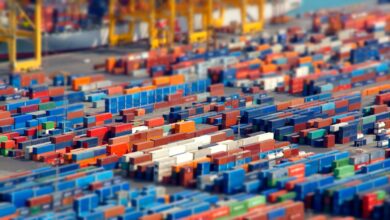Blockchain Supply Chain Use Cases gaining force

In logistics, the Maersk and IBM blockchain pilot program, revolved around creating a digital distributed ledger, whereby a single electronic place houses all the documents related to a shipment .
In a pilot led by T-Mining, a company that is testing blockchain-based applications for logistics containers, the technology provides the personnel with clearance to pick up a load, which indicates that it is more secure than traditional IT solutions. It also prevents the occurrence of fictitious pickups, whereby con artists show up at a shipper’s dock with fabricated documents to steal.
Furthermore, Kouvala Innovation, a Finnish development agency, uses blockchain to achieve smart logistics. Project SmartLog for example, introduces a blockchain tech application into the operational data transfer traffic, as an industry-wide solution. This reduces containers travel times, leads to increased quality information across the supply chain and hence, enhances business performance.
The blockchain technology is also useful when it comes to improving food and drug traceability and for reducing costs associated with factoring. For example, a U.K. software startup, Provenance, aims to use the technology to authenticate food, and is testing it to authenticate tuna caught in Indonesia and delivered to Japanese restaurants.





